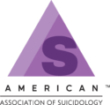Living With Grief for Suicide Loss Survivors
In the aftermath of a death by suicide, loss survivors—family, friends, and others impacted—are often confronted by a complex tapestry of emotions that may feel insurmountable. This kind of grief, known as suicide loss or suicide bereavement, can be overwhelmingly intense, multifaceted, and unique to each individual. It is key that suicide loss survivors have access to the support needed to process and live through the loss.
The Complicated Nature of Suicide Grief
Understanding suicide grief is the first step toward coping with it. Grief for suicide loss survivors is often marked by an array of conflicting emotions, including shock, anger, guilt, and profound sadness. Loss survivors often grapple with “why” questions that cannot be answered, or feel a sense of guilt or responsibility for the suicide. Additionally, a portion of suicide loss survivors experience symptoms of post-traumatic stress.
Suicide grief is complicated not only because of its emotional depth, but also due to societal stigma attached to suicide, making it harder for loss survivors to express their feelings openly or seek support. The journey through suicide loss can feel isolating, and many have found hope and healing on the other side of this loss with the support of other loss survivors.
Strategies for Dealing with Suicide Grief
Everyone experiences grief differently and it is important to find the approaches that are most effective for you and your experience. Here are a few strategies that may help:
- Acknowledge your feelings: Give yourself permission to feel and express whatever emotions come your way. Ignoring or suppressing these feelings may only prolong the grieving process.
- Seek professional help: Mental health professionals are trained to help you navigate the intense emotions accompanying bereavement. They can provide tools and strategies tailored to your specific needs, and can help you find healthy ways to keep the memory of your loved one alive.
- Connect with others: Isolation can intensify feelings of grief. Try to stay connected with friends and family. Share your feelings with those you trust and who can offer empathy and support.
- Self-care: Regular physical activity, balanced nutrition, and ample sleep can help manage the physical symptoms of grief, as well as promote improved mental health. Mindfulness practices, like yoga and meditation, can also help you stay connected to your body and emotions.
- Find your own pace: Everyone’s grief timeline is different. Do not rush the process or compare your journey to others’. Allow yourself the time you need to heal.
Finding Suicide Loss Support
There are many different types of resources available to support suicide loss survivors in their journey toward healing. You can find suicide loss support in these areas and more:
- Support groups: There are many support groups specifically designed for suicide loss survivors. These groups offer a safe, understanding space for survivors to share their experiences, learn from others, and receive support from others who understand this kind of grief.
- Online communities and resources: If in-person support feels too daunting, there are a number of online communities and forums that can provide insight and companionship in a more anonymous setting. You can also find online resources to help you through your loss and connect you with supportive and understanding communities.
- Crisis lines: In moments of crisis or intense grief, crisis lines such as the 988 Suicide and Crisis Lifeline can support on the phone, through text-message, or web-based messaging) can provide immediate support.
- Therapy: The process of healing from the trauma of suicide is multifaceted and layered. It is not just about managing the pain, but also about finding a new normal, learning to live with the loss, and reconstructing a meaningful life. Licensed therapists who specialize in complex grief can provide a safe, confidential, and non-judgmental space to explore these complex emotions and challenges.
Navigating suicide loss is an arduous journey, but no one has to walk this path alone. With understanding, self-care, and support, loss survivors can find their way to healing and hope.
About The American Association of Suicidology (AAS)
The American Association of Suicidology is the world’s largest and nation’s oldest membership-based suicide prevention organization. Founded in 1968 by Edwin S. Shneidman, PhD, AAS promotes the research of suicide and its prevention, public awareness programs, public education and training for professionals and volunteers. The membership of AAS includes mental health and public health professionals, researchers, suicide prevention and crisis intervention centers, school districts, crisis center professionals, survivors of suicide loss, attempt survivors, and a variety of laypersons who have an interest in suicide prevention. Learn more about AAS at www.suicidology.org.
Donate today to support AAS’ mission to promote the understanding and prevention of suicide and support those who have been affected by it.
